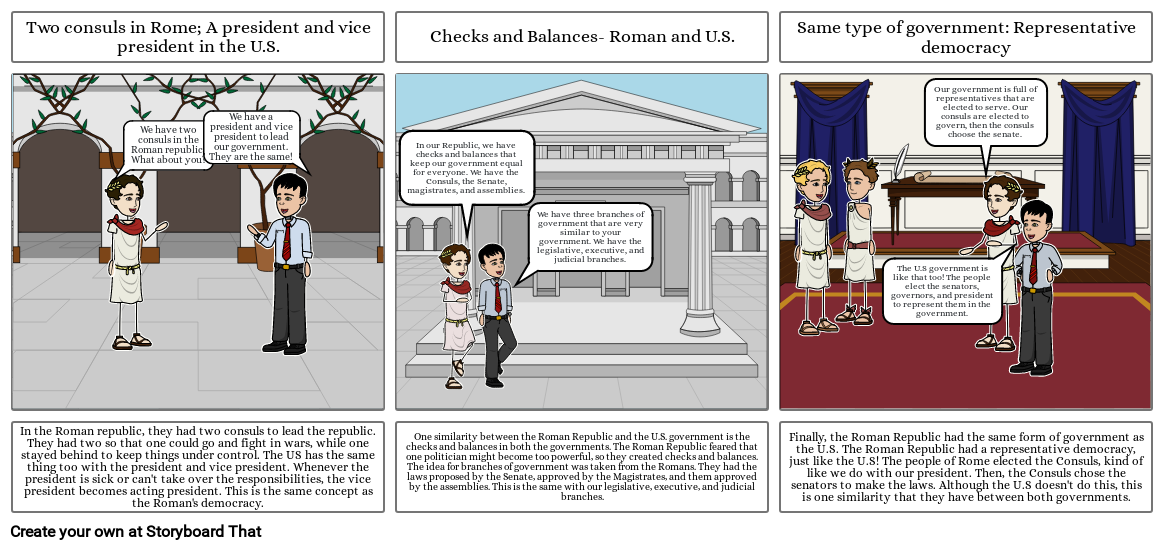Tour of the Roman Republic; Similarities between the U.S and Roman governments

Süžeeskeem Kirjeldus
The U.S president is given a tour by a senator in the Roman Republic. They learn about the similarities between their governments.
Süžeeskeem Tekst
- Two consuls in Rome; A president and vice president in the U.S.
- We have two consuls in the Roman republic. What about you?
- We have a president and vice president to lead our government. They are the same!
- Checks and Balances- Roman and U.S.
- In our Republic, we have checks and balances that keep our government equal for everyone. We have the Consuls, the Senate, magistrates, and assemblies.
- We have three branches of government that are very similar to your government. We have the legislative, executive, and judicial branches.
- Same type of government: Representative democracy
- The U.S government is like that too! The people elect the senators, governors, and president to represent them in the government.
- Our government is full of representatives that are elected to serve. Our consuls are elected to govern, then the consuls choose the senate.
- In the Roman republic, they had two consuls to lead the republic. They had two so that one could go and fight in wars, while one stayed behind to keep things under control. The US has the same thing too with the president and vice president. Whenever the president is sick or can't take over the responsibilities, the vice president becomes acting president. This is the same concept as the Roman's democracy.
- One similarity between the Roman Republic and the U.S. government is the checks and balances in both the governments. The Roman Republic feared that one politician might become too powerful, so they created checks and balances. The idea for branches of government was taken from the Romans. They had the laws proposed by the Senate, approved by the Magistrates, and them approved by the assemblies. This is the same with our legislative, executive, and judicial branches.
- Finally, the Roman Republic had the same form of government as the U.S. The Roman Republic had a representative democracy, just like the U.S! The people of Rome elected the Consuls, kind of like we do with our president. Then, the Consuls chose the senators to make the laws. Although the U.S doesn't do this, this is one similarity that they have between both governments.
Loodud üle 30 miljoni süžeeskeemi

